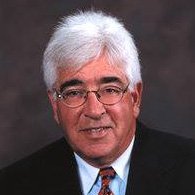The Achilles’ Heel of Dental Partnerships
July 27, 2015
 Dental partnerships, where two or more doctors own equal or minority/majority interests, are very complicated entities. The legal documentation for a dental partnership routinely runs over 100 pages, and unfortunately the value of these partnerships is often only as secure as the legal language describing them. Over the years, I have witnessed a lot of unhappy professional partnerships. My observations have reinforced the dictum that “one marriage is difficult enough!” There are, of course, exceptions to every rule, and I have many clients who are successful with this model . But in general, I am not a big fan of dental partnerships and I believe there are better options.
Dental partnerships, where two or more doctors own equal or minority/majority interests, are very complicated entities. The legal documentation for a dental partnership routinely runs over 100 pages, and unfortunately the value of these partnerships is often only as secure as the legal language describing them. Over the years, I have witnessed a lot of unhappy professional partnerships. My observations have reinforced the dictum that “one marriage is difficult enough!” There are, of course, exceptions to every rule, and I have many clients who are successful with this model . But in general, I am not a big fan of dental partnerships and I believe there are better options.
One of the biggest challenges is how to fairly compensate a partner who becomes disabled and can no longer perform clinical procedures. Death, as they say, is easy. Life insurance policies will pay out the appropriate valuation to the estate of the deceased partner. The surviving partner does not take one dime out of his/her pocket. In the case of disability, however, usually there is the requirement for the healthy partner to buy out the interest of the disabled partner and become the 100% owner of the practice. In order to do this, the healthy doctor does in fact now have to go to the bank and get a loan to cover the buyout. This new debt service will put major stress on a business that is already revenue compromised.
I recently became aware of a great insurance product called Disability Buyout Insurance (DBO). A DBO policy is designed to fund a disability buy/sell agreement. It helps ensure that a professional practice can continue after the total disability of one of the owners or partners. It does this by requiring the disabled partner to sell his or her interest to the remaining owner for an agreed upon price and according to terms defined in the agreement.
I believe that the cost to purchase this type of insurance policy is relatively low considering the massive benefit. A $500,000 DBA policy for a healthy 45 year old costs about $4100/year. Considering that one out of three dentists will be disabled at some point in their career, it provides great peace of mind.
There are many guidelines and specifics for this type of policy, and not all situations will apply.
• The two doctors cannot be more than 15 years apart in age.
• The older partner cannot be more than age 51.
• The partners cannot be husband and wife or father/mother/child.
• The policy will cover siblings.
• The maximum limit of the policy is $2,000,000 with a valuation of no more than 1 X gross collections.
For obvious reasons, this very valuable insurance product does not apply to everyone. But if you think that you might fit into this narrow niche, you should call Tyler DeStefano at 978-907-6002 and get some advice from a real expert.
Chop Down the Phone Tree
July 13, 2015
 First impressions dominate. And by definition, you never get a second chance to make a great first impression. So I am flabbergasted and certainly underwhelmed by what I often experience when I call a dental office. Here are my suggestions for proper telephone technique that are designed to impress.
First impressions dominate. And by definition, you never get a second chance to make a great first impression. So I am flabbergasted and certainly underwhelmed by what I often experience when I call a dental office. Here are my suggestions for proper telephone technique that are designed to impress.
1. A real live person should answer the telephone. I hate phone trees! A phone tree is an automated telephone information system that speaks to the caller with a combination of fixed voice menus in real time. The caller can respond by pressing phone keys or speaking words or short phrases. “Please listen closely because our menu options have changed: Press one for the doctor, press two for the hygienist, press three if you are in pain, press four if you are a new patient etc. Many times, after pressing all these buttons, you end up in voicemail anyway. I don’t care about listening to menu options that might have changed. I just want to speak to a real person who can take care of my request right away. When you call Lands’ End or LL Bean, the phone is always answered on the second ring and you speak to a friendly person who is ready to take your order. Why can’t this happen in your practice?
2. When someone answers your phone, please have her announce her name. “Dr. Jones’ office” is not an acceptable greeting. Patients really appreciate knowing to whom they are speaking. I like “Thanks for calling Dr. Jones’ office – this is Melissa”. And “this is Melissa” is said with an intonation that implies “how may I help you?”
3. Answer the telephone over lunch. For many people, the only time that they can call is during lunch. Arrange coverage utilizing all staff members. Pay them their normal hourly rate. But please–teach assistants and hygienists who normally do not answer the telephone the proper way to answer. You don’t want it to sound like the cleaning service is answering your phone.
4. Answer your phone on the weekends. You don’t want to miss these calls. It is very easy to arrange call forwarding to staff cell phones. Staff members should be required to take weekend coverage on a rotating basis and are compensated for their efforts.
5. If you must default to a message machine during normal business hours, please do not say “we will get back to you as soon as possible”. It is much friendlier to say “we promise to return your call within 15 minutes.” And then make sure you do!
6. Never place a person on hold without asking their permission. “Dr. Jones’ office – hold please” is simply not acceptable. If you are on another call, or assisting someone at the desk, simply excuse yourself from the primary conversation. Then answer your telephone with the normal telephone greeting – find out who is calling – tell them you are on another call – and then ask them if they would like to hold or be called back in a few minutes. That entire process will not take longer than 20 seconds. Time it if you don’t believe me.
7. Consider answering services as a possible alternative to an end of the day message machine. There are some good companiesout there that are cost effective. But be sure to do your due diligence and check references.
The telephone is the entryway to your dental practice, and the person answering your phone just might be the most important person in your employ. Exquisite telephone technique is part and parcel of exquisite customer service. You shouldn’t accept anything else.

